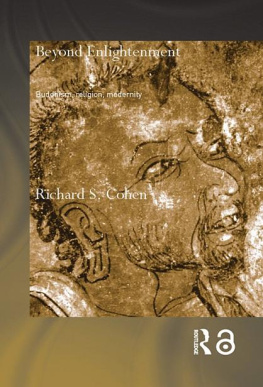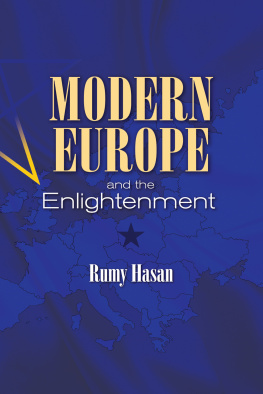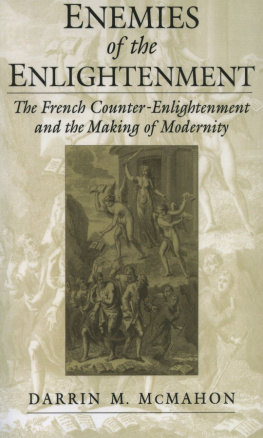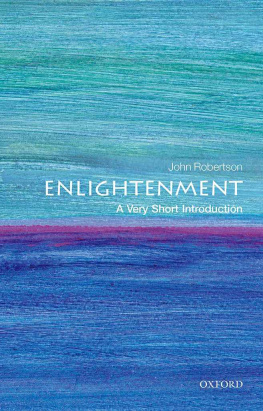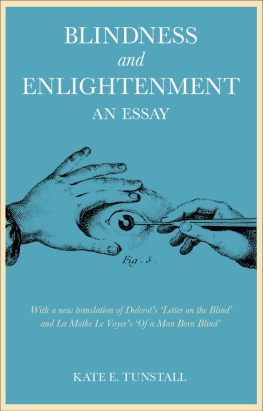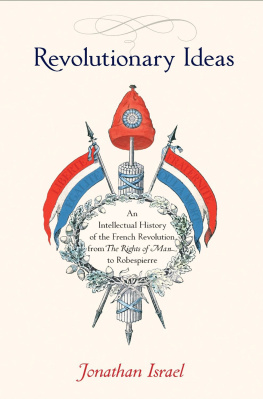WHAT PEOPLE ARE SAYING ABOUT
ENLIGHTENMENT INTERRUPTED
Michael Steinbergs Enlightenment Interrupted is a master class and a rollercoaster ride, all at once. The pitfalls of abstract individualism have been pointed out since Hegel, and explaining them has been central to radical political thought for fifty years by now. But its never been easy to grasp concretely how that separation of self and world came about, and what the alternative to it could have been. The extraordinary achievement of Steinbergs book is to give us a clear view of those horizons. He sets out the key moments of German idealism, and brings out their dramatic intensity by relating them to their own time and our present crisis. The argument is lucid, timely and beautifully composed, and the stakes could not be higher.
Andrew Nash, Associate Professor, Department of Political Studies, University of Cape Town
German idealist philosophers such as Kant, Fichte, and Hegel live on into the present, but they are confined in a cubbyhole visited only by academic philosophers, the occasional literary scholar or intellectual historian, and people looking to make jokes about unfathomable Germanic compound nouns. Steinbergs book releases them from this place of enforced irrelevance and explains, with striking insight, how they came to be so belittled and ignored. He allows them to speak to us with all the richness of their vision of a connected, active, fulfilled humanity. In limpid, eloquent prose, he gives us the gift of their wisdom in confronting and changing the isolating effects of modernity.
Professor Celia Applegate, William R. Kenan, Jr. Chair of History, Vanderbilt University
First published by Zero Books, 2014
Zero Books is an imprint of John Hunt Publishing Ltd., Laurel House, Station Approach,
Alresford, Hants, SO24 9JH, UK
www.johnhuntpublishing.com
www.zero-books.net
For distributor details and how to order please visit the Ordering section on our website.
Text copyright: Michael Steinberg 2013
ISBN: 978 1 78279 014 3
All rights reserved. Except for brief quotations in critical articles or reviews, no part of this book may be reproduced in any manner without prior written permission from the publishers.
The rights of Michael Steinberg as author have been asserted in accordance with the Copyright,
Designs and Patents Act 1988.
A CIP catalogue record for this book is available from the British Library.
Design: Lee Nash
Printed and bound by CPI Group (UK) Ltd, Croydon, CR0 4YY
We operate a distinctive and ethical publishing philosophy in all areas of our business, from our global network of authors to production and worldwide distribution.
By the same author
A New Biology of Religion: Spiritual Practice and the Life of the Body
In the Land of Temples: Notes from a South Indian Pilgrimage
The Fiction of a Thinkable World: Body, Meaning, and the Culture of
Capitalism
Our Wilderness: How the People of New York Found, Changed, and
Preserved the Adirondacks
For Loret
Philosophy must insist that our age surrender the world it has inhabited until now and find for itself an entirely different one; and it is no wonder if such an exacting demand proves fruitless
Johann Gottlieb Fichte: Addresses to the German Nation, 1808
Preface
History writing is a political act; it either confirms or questions the present, and it is all the more necessary if it does the latter. The thought that the world might have become something different may clear the path for critique and action. That aside, tracing the currents that lead from the past to the present helps us see which of our problems may be soluble within our cultures particular terms and which ones derive from the deep structures of thought and experience that tie a culture together and for just that reason are difficult to undo. Without this preparation we may well grant assumptions which in fact dictate the very practices and ideas which we want to criticize, abolish or transform.
That particular trap is one we are all too apt to fall into today, where the regime of liberal democracy and market economics seems to express nothing less than the natural order of things. Virtually everyone, on the left as well as on the right, takes for granted the primacy of the individual, the self which is logically and ethically prior to anything else and who is or should be protected by fundamental human rights and is or should be free to engage with other free and sovereign individuals in properly leveled playing fields of political and economic life.
From those premises, however, there is little that one can construct except a world much like this one, with a few adjustments here and there to restrain misconduct and corporate power and to assuage the misery of the less fortunate. Neither parliamentary democracy nor market economics is questioned in itself. The future, should we have one, is thus only a kinder, gentler version of the present.
Behind the specific focus of this work, which concerns itself with the philosophical movement in late eighteenth-and early nineteenth-century Germany we call German idealism or classical German philosophy, is a different set of premises. It is that the individuality from which we elaborate our thinking and practice does not exist as a fact of nature but is an element within our cultural history and social milieu. The experience of being an individual is a cultural construct and our introspective self-identification with an apparently inner and pre-social essence is not self-validating. We may be very different from the way we appear to ourselves.
In an earlier book, The Fiction of a Thinkable World, I argued that the separation of self and world in experience is all that is necessary for the emergence of capitalist modernity. The contemporary confidenceor dreadthat there is no alternative, that we have reached a point where social process has assumed its final form, arises from the self-evidence of liberal capitalisms necessary and sufficient conditions. But self-evidence is no proof. Every child believes her parents to be normal, even when they beat her savagely. The members of any community are apt to assume that their way of life reflects the real nature of humanity. We in the modern world are no different, and we are no more justified in thinking this than is any other group.
In one important sense we are deeper in delusion than the Azande, the Greeks of Homers day and the sages of the Upanishads. While we humans of whatever group do indeed experience ourselves as separate from others, it is only in the modern world that this notion has been made into the foundation of the social order. In virtually every other human community the independence of the individual has been contested and generally dismissed as illusion. The reality from which human life emerges is thought to be a larger complex of activity which is imagined as the life of the spirit and figured in myth and enacted in ritual, and there are good reasons for thinking that these practices do point to something real. As I have argued in another book, A New Biology of Religion, the omnipresence of religious life is far from being a sign of humanitys incorrigible fear of reality. It is, instead, testimony to the widespread discovery that everyday experience does not correspond to the deep structures of human life. This is a discovery and not a fantasy; the shape of the world disclosed in religious practices is strikingly close to the shape of the world implied by much recent biology.



